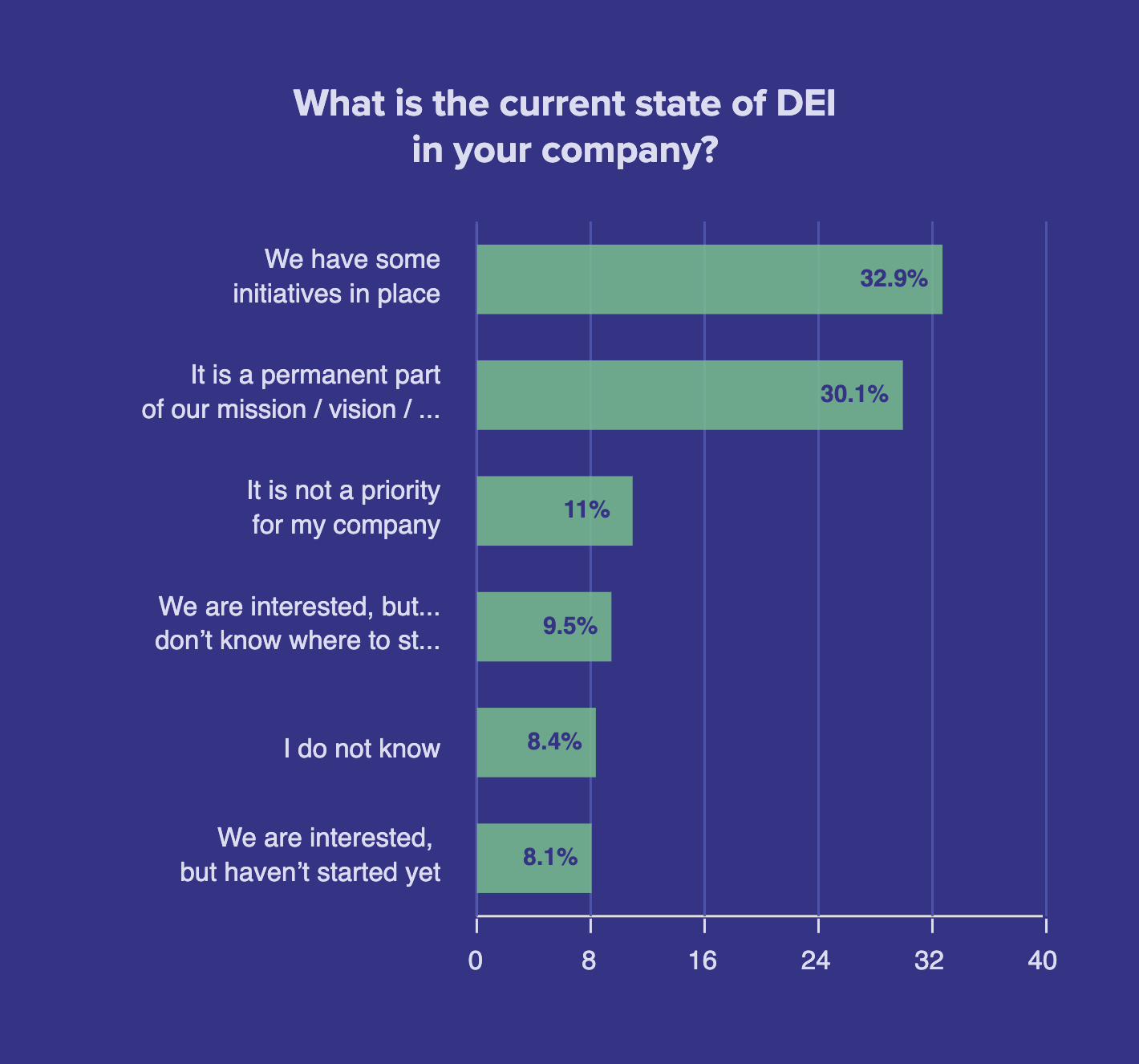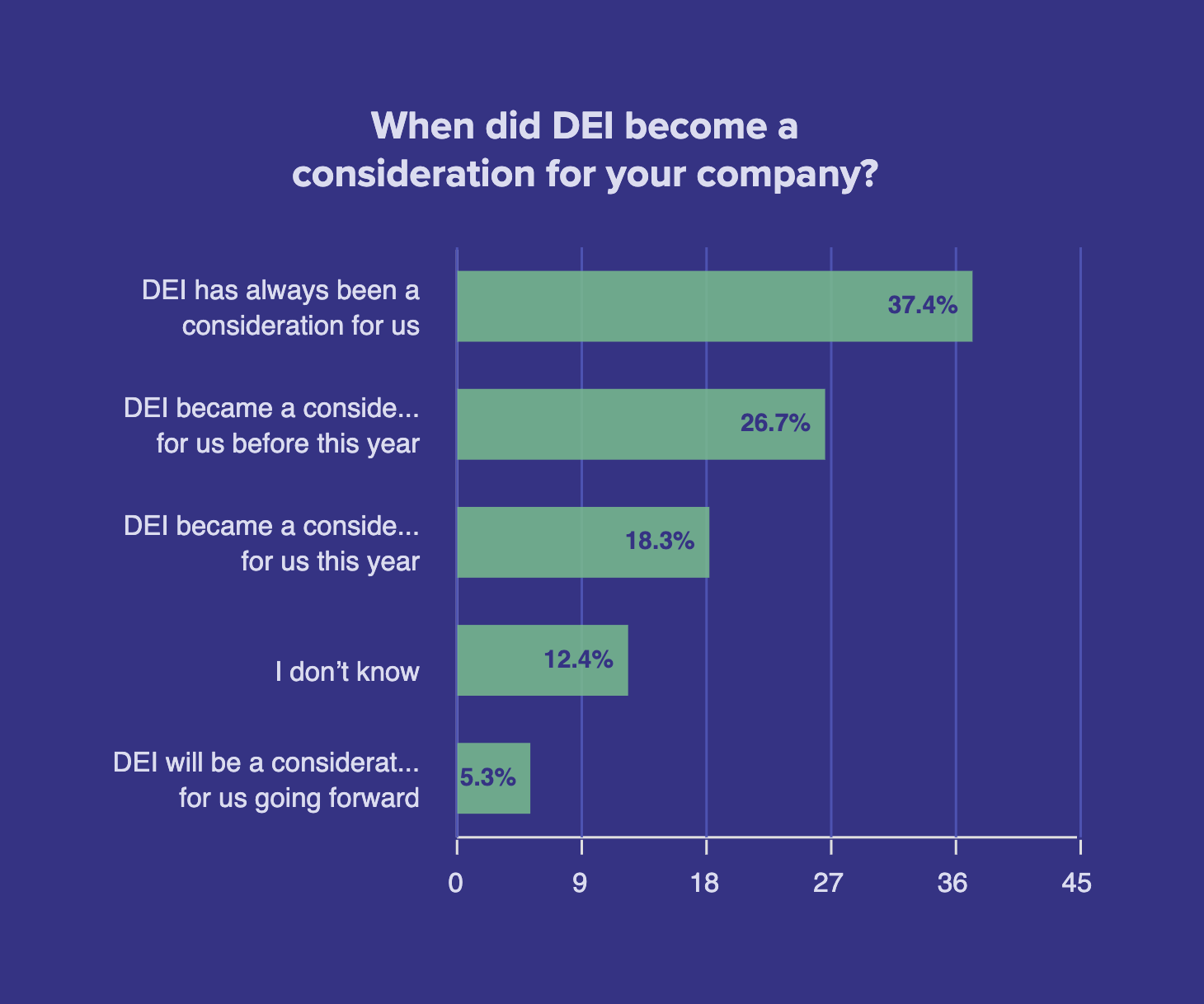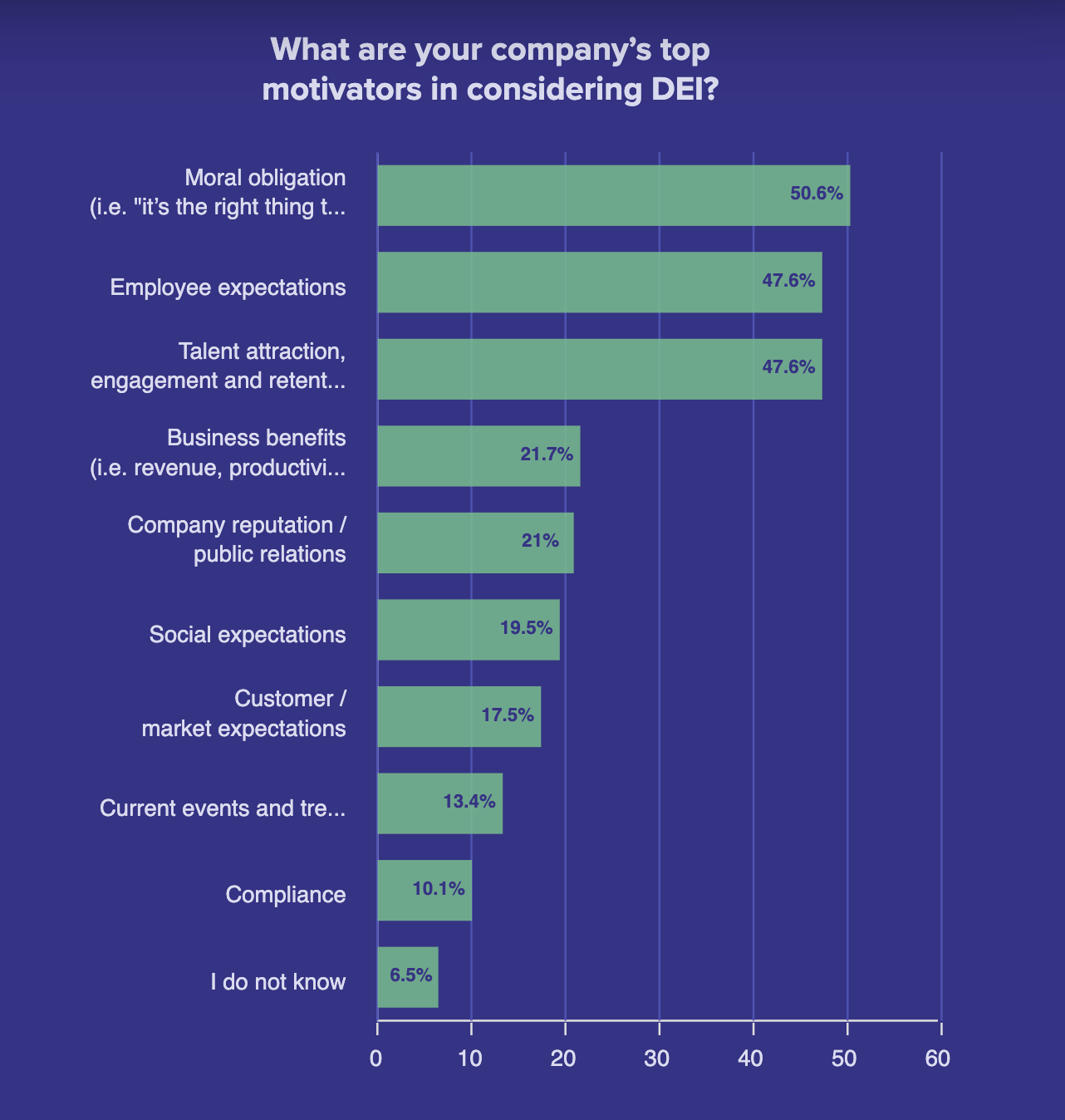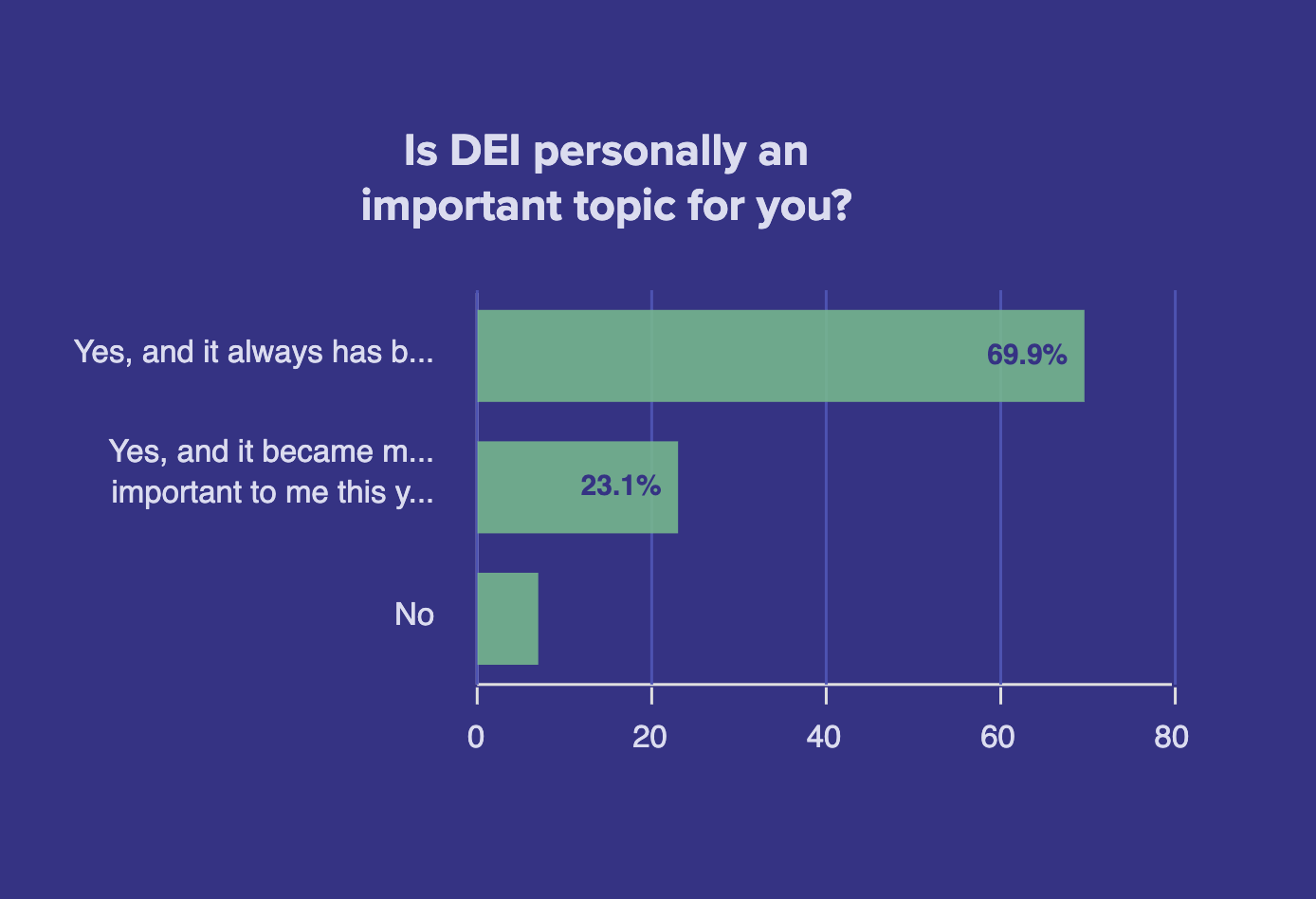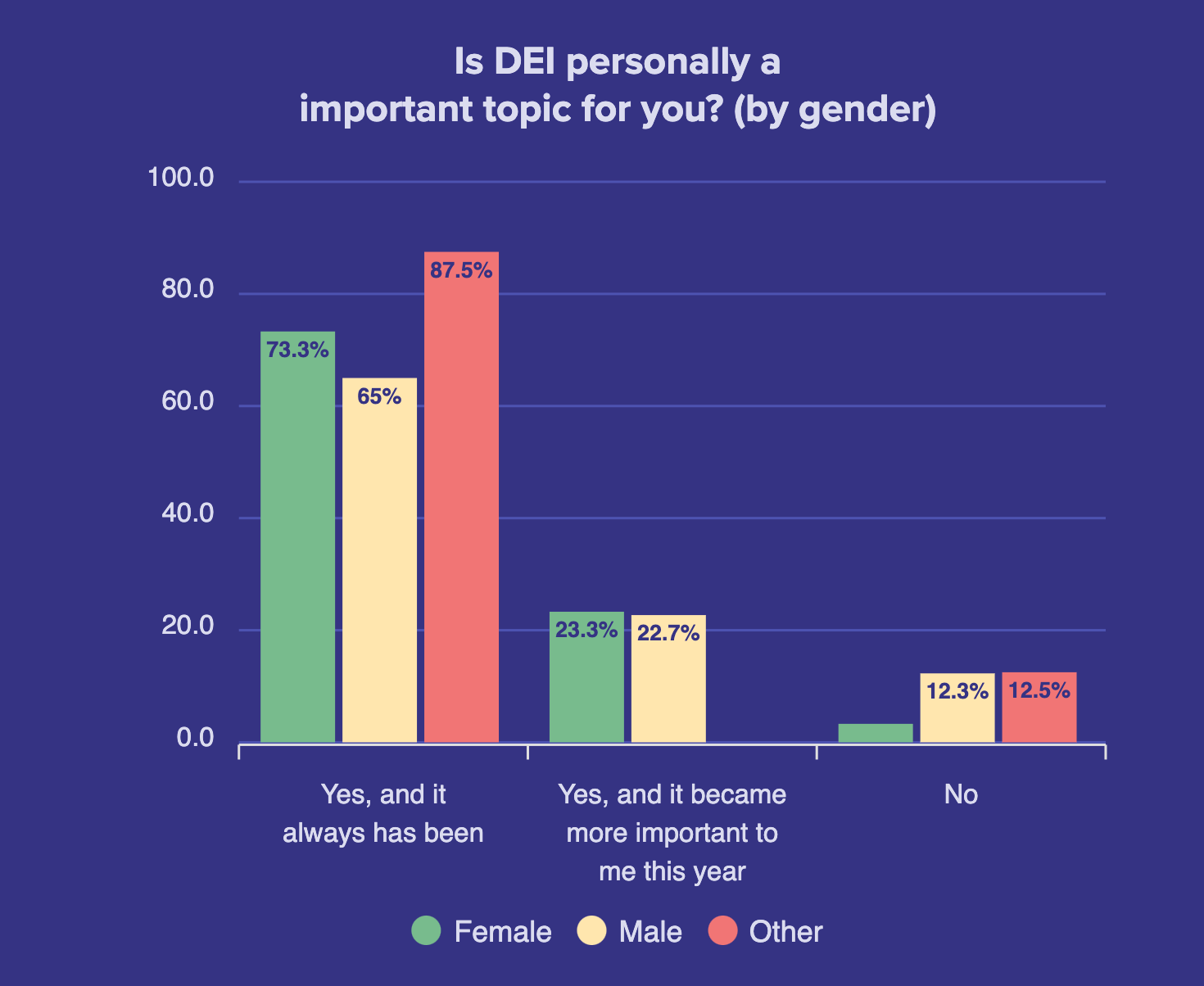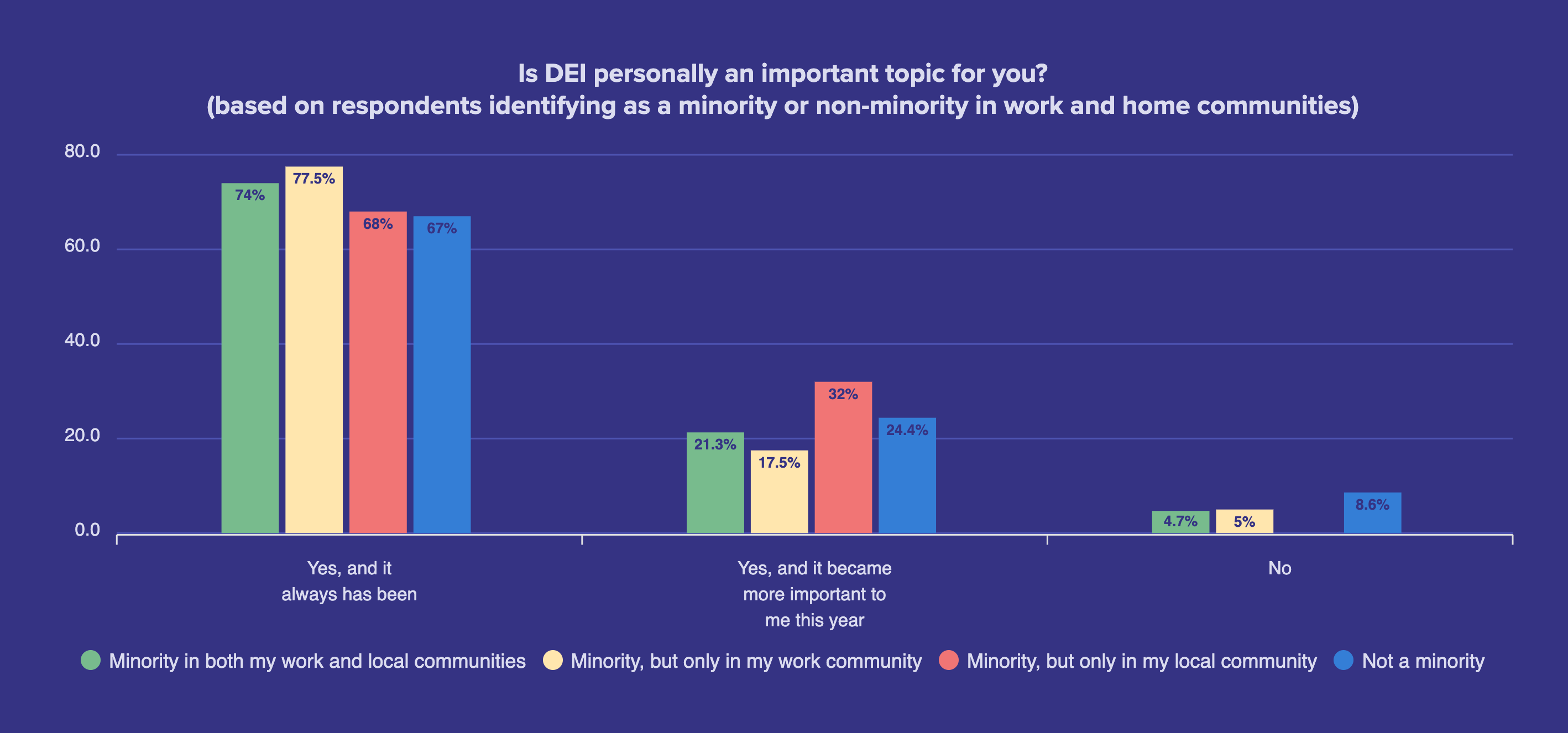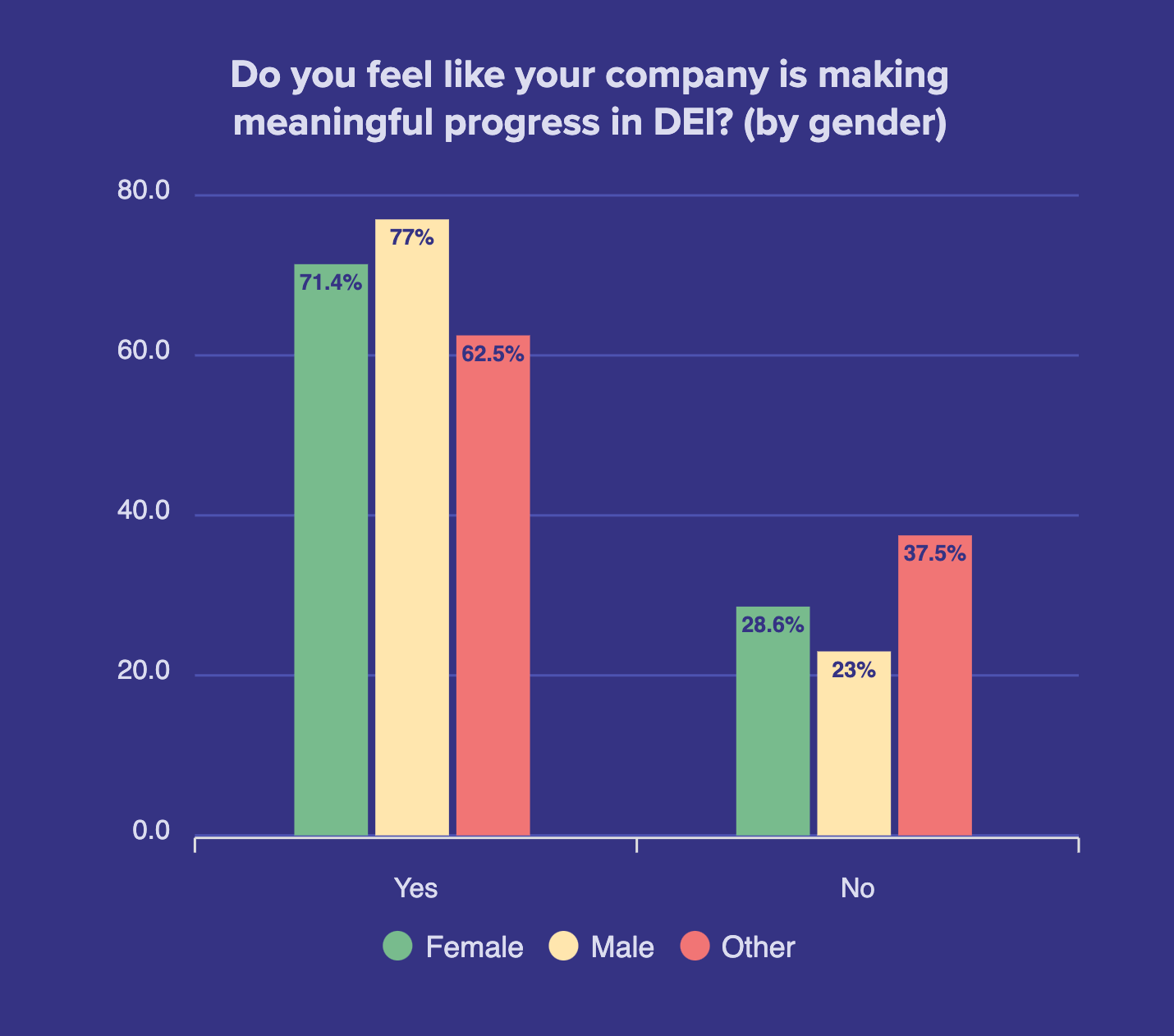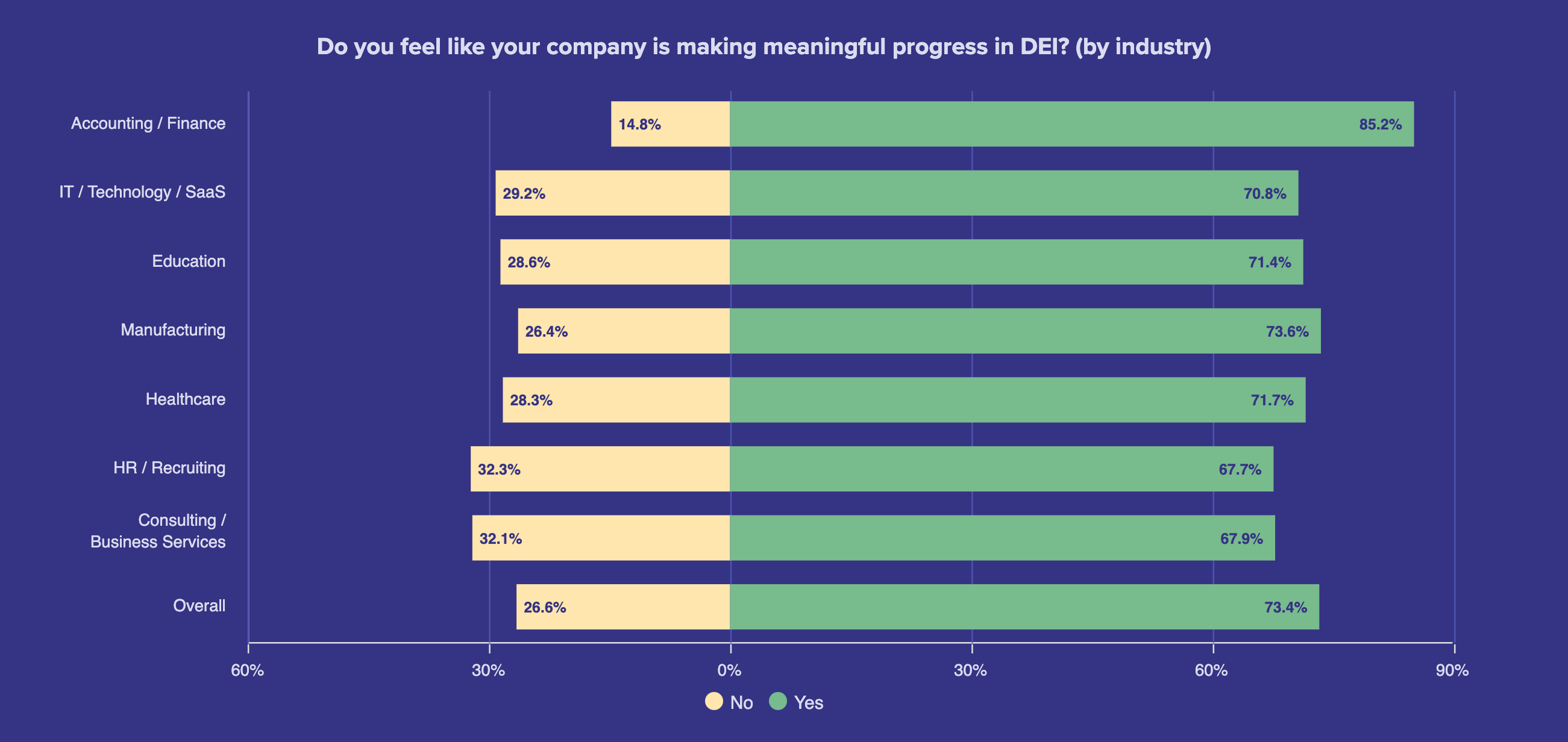What does DEI mean to you and your business?
This is the second in a series of excerpts from our survey report titled All roads lead to diversity, equity & inclusion in the workplace. But which one do you take?, published in January 2021. Nearly 800 business and HR professionals filled out the 30-question survey, resulting in numerous compelling insights both for business and recruitment interests.

Fadjanie Cadet, L.E.K. Consulting’s Diversity Recruitment and Engagement Lead, told us in August 2020 that the prioritization of DEI in organizations has evolved over time from being strictly a compliance-based initiative, through to a proven business case for DEI strategy, to ‘it’s the right thing to do’.
If you’re wondering what DEI means to you and others, Fadjanie’s insight is the answer. DEI means a lot to people right now.
In this chapter, we address the following questions:
- What does DEI mean to businesses right now?
- When did DEI become important for businesses?
- Why is DEI important to businesses?
- How much progress has been made in DEI at work?
- How important is DEI to people on a personal level?
What DEI means to you: The moral imperative
When asked about the current state of DEI in their company, the vast majority of those in our survey cited an active level of interest in DEI, with nearly two-third of respondents (63% combined) saying they have some initiatives in place or that DEI is a permanent part of their company’s overall mission / vision / values. An additional 17.6% say there is interest in their company, and that it’s just a matter of when or how to do it.
In terms of DEI strategy planning, two-thirds of respondents (64.1%) say the DEI strategy in their company either started before 2020 or had always been a part of their company strategy.
But is DEI becoming more important in the workplace? Yes, it is. DEI means more now to businesses than before. An additional 18.3% say they started considering DEI in 2020, and 5.3% say DEI will be a consideration going forward – meaning nearly one quarter of respondents in total (23.6%) are now taking note of DEI where they weren’t prior to 2020.
“We had DEI as a consideration […] years ago, however, this did not extend beyond hiring. Starting [in 2020], we have made top executive changes and are putting in significant effort to make sure that DEI is not only in numbers but that all employees will have an equitable experience at the company.”
We found that the number-one motivator in considering DEI as part of a company’s overall strategy is – as Fadjanie suggests – moral obligation, with 50.6% of all respondents picking that as one of their company’s top three reasons for considering DEI.
Closely following are employee expectations at 47.6% and talent attraction, engagement and retention (also 47.6%). What does DEI mean in the workplace right now? With the “right thing to do” and employee / talent opinions driving change and progress, it means a groundswell of support for having a DEI strategy in your business.
“We have just put some initiatives in place, specifically around racial diversity in response to the [Black Lives Matter] movement.”
Just one in 10 respondents ticked the “compliance” box (10.1%), and one in five selected the “business benefits” box (21.7%). This suggests that many companies have progressed far beyond both as a motivator for having a DEI strategy – and far more now because ‘it’s the right thing to do’ in response to an amplified call for progress in DEI.
Moreover, DEI is no longer simply an initiative – it is now becoming a permanent strategy for many businesses.
“This started with a walk-out of the company that was organized by an anonymous group of employees, but included a large group of employees.”
Personal motivation
Our survey dataset also confirms a significant personal interest in diversity, equity and inclusion. When we asked respondents if DEI means a lot to them personally, 69.9% answered “Yes, and it always has been”. An additional 23.1% answered “Yes, and it became more important to me [in 2020]”. This means a combined 93% of respondents say it’s now important at a personal level.
The responses differ significantly by gender, however. A combined 96.6% of those who identify as female say it has always been personally important to them or became more important this year, compared with 87.7% of those who identify as male and 93%% of all respondents.
While only eight out of 788 respondents in our survey identified as “Other” – two as gender-fluid and four as non-binary – seven did say it has always been important, with just one “No” answer.
The discrepancy in gender is even more striking when looking at non-prioritization of DEI: A full 12.3% of males say it isn’t personally important to them, compared with just 3.3% of females.
The numbers also differ when breaking down answers by whether a respondent identifies as a minority or not. Three quarters (74%) of those who identify as a minority in any category say DEI has always been a personally important topic for them, compared with 69.9% overall, while 8.6% of non-minorities say it isn’t personally important to them, compared with 7% overall.
Progress depends on who you ask
DEI means something to employers too – but that’s a matter of perspective. When we asked respondents if they feel their company is making meaningful progress in DEI – a clear majority (73.4%) answered “Yes”.
However, again, there are significant differences when breaking down the respondents across specific demographics. First, 71.4% of females think their company is making meaningful progress, compared with 77% of males who feel the same way.
The dataset also finds 71.1% of those who identify as a minority in both their work and home communities think their company is making meaningful progress, compared with 74.6% of those who didn’t identify as a minority.
We also identified differences in answers when breaking responses down by industry. Those in Accounting / Finance are much more likely to answer “Yes” at 85.2%, while those in Business / Consulting Services (67.9%) and HR / Recruiting (67.7%) are less likely to answer “Yes” than overall.
Despite all these discrepancies, there’s a majority of support for DEI in the workplace and that holds significant weight for companies in considering DEI as a priority. DEI means something. This signals an organic amplification in the voice supporting DEI initiatives – in other words, it’s a democratically driven decision led by people.
“DEI helps people to be themselves in the workplace and truly is important for overall productivity outcomes. People can perform better when they can be themselves.”
We hope you find our survey results on DEI at work to be helpful to you both professionally and personally. Any thoughts or questions, please feel free to share them with us via Twitter, LinkedIn, or direct email (with “DEI report” in the subject heading). We want to hear from you!
Check out the other excerpts from our survey report on Diversity, Equity and Inclusion:
1. DEI at work: It’s time to take a deep dive
3. Is there meaningful progress in DEI? Depends on who you ask
4. DEI leadership – and who’s actually doing the work?
5. Your DEI strategic plan: The road is fraught with hurdles
6. What are your top DEI initiatives for the workplace?
7. Your DEI recruitment strategy: What are your action items?
8. Time for a DEI action plan: We’ll help you get there
Frequently asked questions
- What does DEI stand for in recruiting?
- Diversity, Equity, and Inclusion are essential to any workplace. Diversity means the presence of differences within a given setting - such as race or gender- while equity ensures that processes stay impartial by ensuring everyone has an equal chance at success no matter their background while working in your company.
- How do you promote DEI in recruitment?
- Increase diversity in your sourcing by targeting sources where diverse candidates congregate, such as social media or industry conferences. Encourage employees and referrers to use their connections for job opportunities at other companies looking to hire more people like them!
- What is a DEI strategy?
- DEI is a powerful way to create an inclusive, welcoming environment. Because it involves everyone in the workforce being treated with respect and dignity by their employers - regardless of identity or circumstances- DEI can help businesses reach goals like increased productivity while maintaining a strong workplace.

